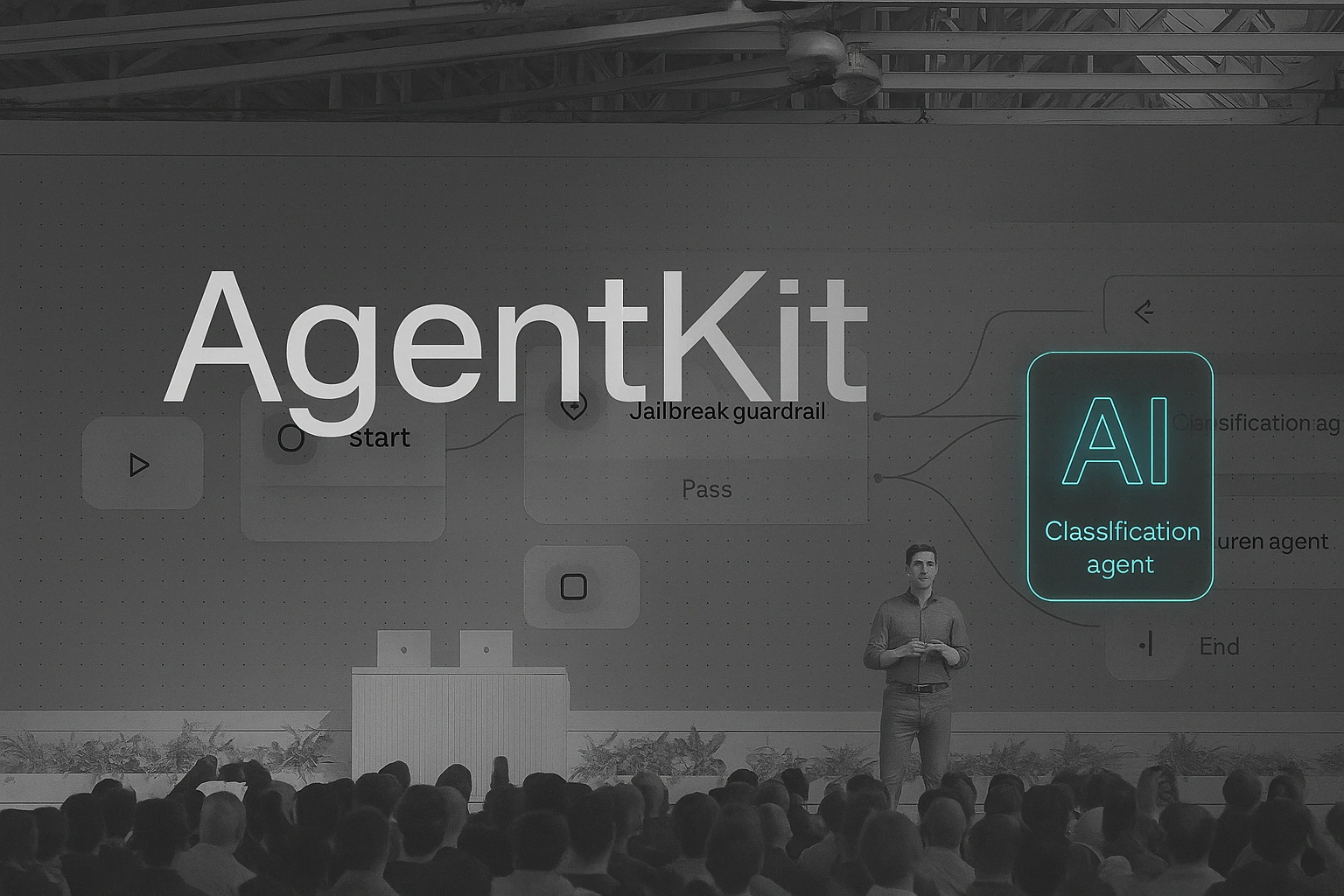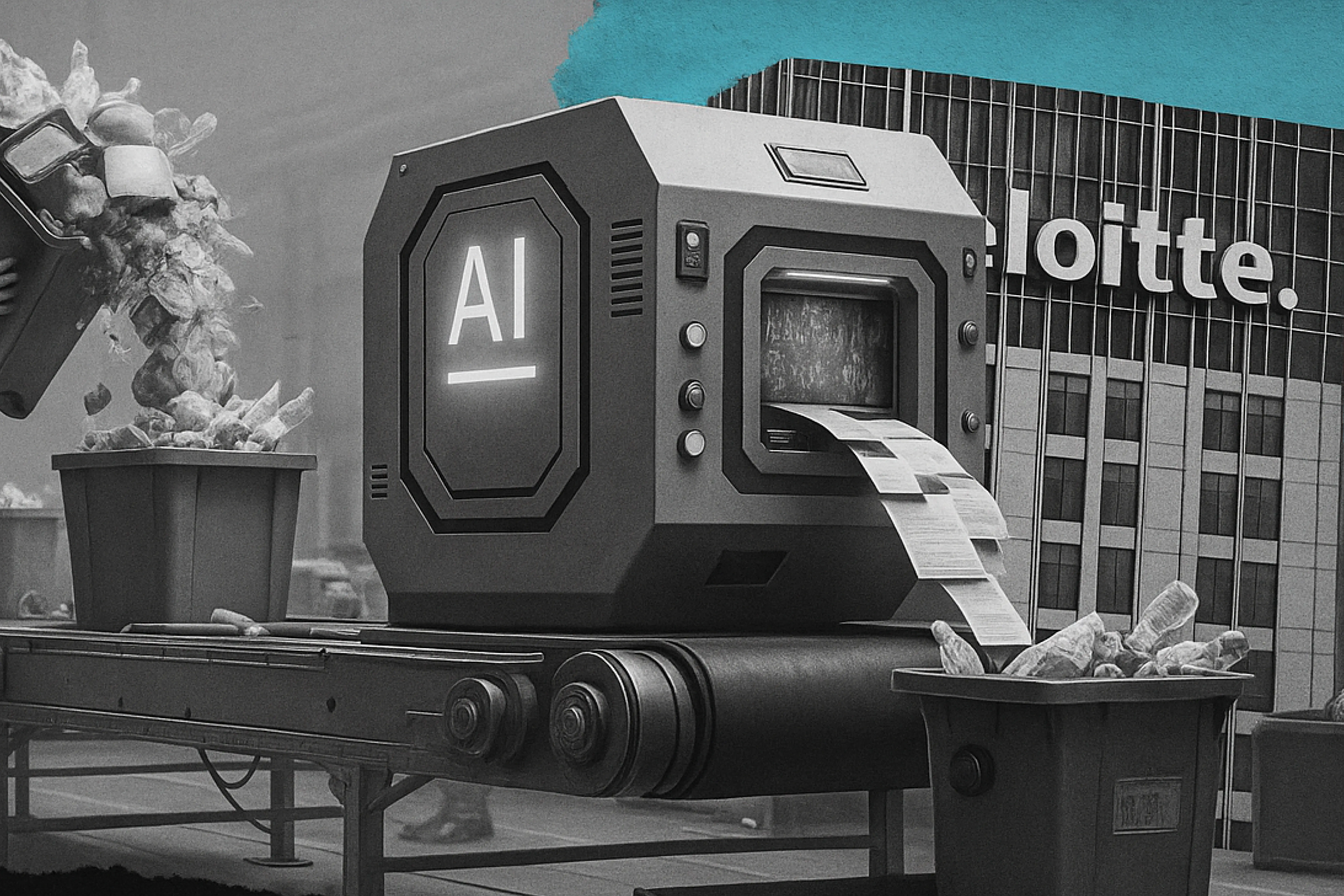
at
Key Takeaways
Agentic AI benefits: Transforming business operations through intelligent automation
This article is part of our comprehensive guide to Agentic AI. For a complete overview, check out our Complete Guide to Agentic AI: Implementation, Benefits, and Strategic Considerations.
Introduction: The business impact of Autonomous AI
In today's hypercompetitive business landscape, organizations are constantly searching for technologies that provide sustainable competitive advantages. Among the most promising recent innovations, agentic AI stands out for its unique ability to transform operations through autonomous, intelligent decision-making and action.
Unlike traditional automation tools that execute predetermined steps within rigid parameters, agentic AI systems can perceive their environment, make contextual decisions, and initiate actions to achieve specific objectives with minimal human intervention.
This fundamental shift, from automation that requires constant oversight to autonomous systems that independently pursue goals, is creating unprecedented opportunities for operational transformation.
This article explores the concrete business benefits of implementing agentic AI and examines real-world applications across industries, providing decision-makers with practical insights into how this technology can drive meaningful business outcomes.
Core business benefits of Agentic AI
Operational excellence through intelligent automation
Agentic AI transforms operational efficiency through capabilities that go far beyond traditional automation:
Complex process automation
Unlike conventional automation tools that struggle with exceptions and edge cases, agentic AI can:
- Handle multi-step workflows requiring contextual judgment
- Navigate decision points based on real-time conditions
- Adapt processes dynamically when circumstances change
- Manage exceptions intelligently without human intervention
According to Harvard Business Review, "By allowing higher-order abstraction, longer context windows, multi-model capabilities, and programming via natural language, agentic AI offers the promise of greater productivity, innovation and insights for the human workforce."
Reduced operational friction
Agentic AI eliminates common operational bottlenecks by:
- Working continuously without fatigue or attention lapses
- Operating around the clock across different time zones
- Processing multiple tasks simultaneously where appropriate
- Maintaining consistent performance regardless of workload
This continuous operation capability enables organizations to achieve new levels of service continuity and responsiveness that were previously impossible without substantial staffing investments.
Resource optimization
Intelligent resource allocation represents another significant advantage:
- Dynamic staff scheduling based on real-time demand patterns
- Inventory optimization that balances availability against carrying costs
- Equipment utilization maximization through predictive maintenance
- Energy usage optimization based on operational requirements
These capabilities directly impact the bottom line through reduced waste, improved asset utilization, and more efficient resource deployment.
Enhanced decision quality
Agentic AI significantly improves organizational decision-making through:
Comprehensive data analysis
Agentic AI systems can:
- Analyze vast datasets beyond human cognitive capacity
- Integrate information from diverse, disconnected sources
- Identify patterns and correlations invisible to human analysts
- Consider more variables simultaneously when evaluating options
This comprehensive analysis capability ensures decisions are based on the fullest possible information picture.
Reduced decision bias
By applying consistent reasoning frameworks, agentic AI helps overcome common decision biases:
- Confirmation bias: Evaluating all evidence objectively
- Recency bias: Giving appropriate weight to historical data
- Availability bias: Considering factors beyond readily accessible examples
- Overconfidence bias: Quantifying uncertainty accurately
According to IBM, these systems "can make judgments based on multiple parameters, making them more reliable than human judgment in certain scenarios."
This reduction in cognitive biases leads to more objective, fact-based decisions across the organization.
Scenario modeling and risk assessment
Agentic AI enhances risk management through:
- Rapid evaluation of multiple potential outcomes
- Quantification of uncertainties and probabilities
- Identification of risks that might be overlooked by humans
- Continual reassessment as conditions change
Organizations implementing these capabilities report significant improvements in risk anticipation and mitigation effectiveness.
Continuous availability and scalability
The operational elasticity provided by agentic AI represents a transformative capability:
24/7 operational continuity
Unlike human resources, agentic AI:
- Functions continuously without fatigue or performance degradation
- Maintains consistent service levels during nights, weekends, and holidays
- Responds to urgent situations without delay regardless of time
- Eliminates shift transition information gaps
This continuous operation ensures business processes remain functional at all times, supporting global operations and improving service reliability.
Elastic scalability
Agentic AI provides unprecedented scaling capabilities:
- Instantaneous scaling to handle demand spikes
- Graceful contraction during low-demand periods
- Consistent performance regardless of scale
- Cost-efficiency through right-sized resource utilization
This elastic scaling enables organizations to handle variable workloads efficiently without the traditional tradeoffs between overcapacity and service degradation.
Personalization at unprecedented scale
Agentic AI enables a level of personalization previously impossible at scale:
Individual-level customization
Unlike traditional mass personalization approaches, agentic AI can:
- Maintain comprehensive individual preference profiles
- Consider contextual factors in each interaction
- Adapt approaches based on historical interactions
- Provide truly individualized experiences to millions of users simultaneously
According to Thoughtspot, these capabilities enable companies to "automatically surface the insights, visuals, and summaries you need based on search-driven analytics," delivering "the most relevant results that evolve with your work and company data."
Context-aware interactions
The contextual awareness of agentic AI creates superior experiences through:
- Recognition of situational factors affecting current needs
- Continuity across multiple interaction channels
- Appropriate adaptation to changing circumstances
- Memory of past interactions and outcomes
This awareness transforms customer and employee experiences from transactional to relationship-based.
Human-AI collaboration
Perhaps most importantly, effective agentic AI implementation enhances human capabilities rather than replacing them:
Complementary intelligence
Agentic AI and humans bring different strengths to collaboration:
- AI excels at data processing, pattern recognition, and consistent execution
- Humans excel at creativity, ethical judgment, and emotional intelligence
- Together, they achieve outcomes neither could accomplish alone
This complementary relationship maximizes the value of both human and artificial intelligence.
Expertise democratization
Agentic AI makes specialized knowledge accessible throughout organizations:
- Domain expertise embedded in AI systems becomes available to all employees
- Consistent application of best practices across operations
- Reduced dependency on scarce specialist resources
- Accelerated knowledge transfer and skill development
This democratization creates more capable workforces and reduces operational vulnerability to key person risks.
In short:
.png)
Agentic AI in action: Industry applications and case studies
The benefits of agentic AI are being realized across diverse industries, with particularly compelling applications in several sectors:
Customer experience transformation
Banking: next-generation financial assistance
Leading financial institutions are implementing agentic AI advisors that:
- Provide personalized financial guidance based on individual goals and circumstances
- Proactively identify opportunities for savings, investment, or debt reduction
- Anticipate potential issues and recommend preventive actions
- Maintain context across multiple interaction channels
According to McKinsey, organizations implementing these systems report 31% improvements in customer satisfaction and 28% increases in product adoption rates.
Retail: hyper-personalized shopping experiences
Innovative retailers are deploying agentic AI systems that:
- Create individualized product recommendations based on preferences and behavior
- Guide customers through complex purchase decisions
- Anticipate needs based on life events and purchase patterns
- Orchestrate seamless experiences across digital and physical channels
These implementations are delivering 23% increases in average order value and 19% improvements in customer retention rates.
Operational excellence
Manufacturing: adaptive production systems
Forward-thinking manufacturers are leveraging agentic AI to create:
- Self-optimizing production lines that adjust parameters based on material properties and quality goals
- Predictive maintenance systems that schedule interventions before failures occur
- Dynamic resource allocation that optimizes labor and equipment utilization
- Supply chain orchestration that adapts to disruptions and changing conditions
According to Accelirate, these implementations are achieving 42% reductions in downtime and 27% improvements in overall equipment effectiveness.
Logistics: intelligent supply chain optimization
Agentic AI is transforming logistics operations through:
- Dynamic route optimization that adapts to traffic, weather, and delivery priorities
- Inventory positioning that anticipates demand patterns and supply risks
- Warehouse operations that optimize picking, packing, and storage
- End-to-end visibility with proactive exception management
These capabilities are delivering 18% reductions in transportation costs and 29% improvements in on-time delivery performance.
Knowledge work enhancement
Legal: intelligent contract management
Legal departments are implementing agentic AI solutions that:
- Review and analyze contracts for risks and opportunities
- Draft customized agreements based on established principles
- Monitor compliance with contractual obligations
- Identify optimization opportunities across contract portfolios
Healthcare: clinical decision support
Healthcare providers are deploying agentic AI systems that:
- Analyze patient data to suggest potential diagnoses
- Recommend treatment options based on current medical evidence
- Monitor treatment effectiveness and suggest adjustments
- Coordinate care across multiple providers and settings
Agentic AI has access to the user's health record, which it can take into consideration when it analyzes the patient data or potential diagnoses.
According to ScienceDirect, "Agentic AI systems enhance various aspects of healthcare, including diagnostics, clinical decision support, treatment planning, patient monitoring, administrative operations, drug discovery, and robotic-assisted surgery."
.png)
Linnify case studies: Measurable business impact
Case study 1: Paint industry AI Assistant
Linnify developed an agentic AI solution for a leading European paint and varnish manufacturer that transformed customer interactions and technical support.
Challenge
The client faced several business challenges:
- High volume of repetitive customer questions about product selection and application
- Inconsistent recommendations leading to product returns and dissatisfaction
- Limited expert availability during peak periods
- Difficulty scaling technical support for international growth
Solution
Our team created an intelligent, agentic AI assistant that:
- Provides guidance for both end customers and sales agents
- Offers details about different products (eg, advantages and disadvantages between products based on the user's needs)
- Facilitates product selection through interactive, guided questioning (eg. recommens paint colors based on the user's needs)
- Offers detailed recommendations on correct product usage
- Guides users to the nearest store that has their product
- Prevents common application mistakes through proactive advice
- Escalated any issues directly to the support team
The system integrates with product databases, technical documentation, and customer history to deliver a seamless, personalized experience.
Case study 2: GentrAIner virtual internship platform
GentrAIner, an AI-powered internship simulator transforming education with adaptive, real-time feedback which showcases agentic AI's potential in education and professional development.
Challenge
Educational institutions and corporations faced significant challenges:
- Insufficient real-world practice opportunities for students
- Limited access to personalized coaching and feedback
- Difficulties scaling high-quality experiential learning
- Inconsistent skill development outcomes
Solution
GentrAIner enables companies to create virtual internships tailored to their internal structure and methodologies. It uses AI to generate Virtual Employees with specific roles, communication styles, and responsibilities. These virtual mentors guide users through internship tasks that develop both soft and hard skills, fully aligned with the company’s needs.

The platform demonstrates how agentic AI can:
- Create custom virtual employees with their own tone, personality, and responsibilities
- Access shared company knowledge between the virtual employees
- Dynamically generate tasks based on the internship curriculum
- Enable interaction between users and virtual employees through the company’s internal chat
- Review, give feedback, and score user tasks and homework
- Simulate real-world scenarios for hands-on skill development
- Provide detailed analytics to track learning progress and growth
Quantifying the business value
Organizations considering agentic AI implementation should establish comprehensive frameworks for measuring return on investment. We recommend tracking metrics across these dimensions:
Operational metrics
- Process cycle time: Average time to complete end-to-end processes
- First-time-right rate: Percentage of tasks completed correctly on first attempt
- Exception handling efficiency: Time and resources required to resolve exceptions
- Resource utilization: Efficiency of human and system resource usage
Financial indicators
- Direct cost reduction: Decreases in operational expenses
- Revenue enhancement: Increases in sales or customer lifetime value
- Working capital improvement: Reductions in inventory or receivables
- Return on investment: Overall financial return relative to implementation costs
Experience and quality measures
- Customer satisfaction: Indicators of experience quality
- Employee engagement: Measures of workforce satisfaction and productivity
- Error rates: Frequency and severity of mistakes
- Compliance adherence: Conformity to regulatory and policy requirements
Strategic value creation
- Innovation velocity: Speed of new capability development
- Market responsiveness: Ability to adapt to changing conditions
- Competitive differentiation: Unique capabilities relative to industry peers
- Organizational learning: Knowledge capture and dissemination effectiveness
Monitoring these metrics provides a comprehensive view of agentic AI's business impact and guides ongoing optimization efforts.
Conclusion: Capturing the agentic advantage
Agentic AI represents a paradigm shift in how organizations leverage technology to create business value. By combining sophisticated reasoning capabilities with autonomous action, these systems deliver benefits that transcend traditional automation:
- Dramatic efficiency improvements through intelligent process execution
- Enhanced decision quality through comprehensive, unbiased analysis
- Operational continuity and scalability that adapt to changing demands
- Personalization at a previously impossible scale
- Human capability augmentation that redefines possibility boundaries
As demonstrated by real-world implementations, these benefits translate into measurable business impact across industries. For forward-thinking organizations, the question is not whether to leverage agentic AI but how to do so most effectively to create distinctive capabilities and competitive advantage.
The organizations that thrive in the coming years will be those that thoughtfully integrate agentic AI into their operations, focusing on high-value use cases, appropriate governance, and effective human-AI collaboration.
By doing so, they will achieve levels of efficiency, agility, and personalization that set new standards for operational excellence.
Ready to explore how agentic AI can transform your specific business challenges? Continue your journey with our guides on What is Agentic AI?, Implementing Agentic AI, and The Future of Agentic AI, or contact Linnify's AI experts today to discuss your specific needs.
Contributors
Speakers
Guest
Host
Immerse yourself in a world of inspiration and innovation – be part of the action at our upcoming event

Download
the full guide
Let’s build
your next digital product.
Subscribe to our newsletter
YOU MIGHT ALSO BE INTERESTED IN
YOU MIGHT ALSO BE INTERESTED IN




















